In this comprehensive guide, we will explore the top cryptocurrency trading platforms for 2023. Our evaluation criteria include security, available cryptocurrencies, safety measures, built-in wallets, and more.
Additionally, we provide valuable insights into the leading cryptocurrency exchange and trading platforms in Singapore.
Best Crypto Trading Platform 2023
Our selection of the best cryptocurrency trading platforms is the result of a meticulous analysis of top brokers, taking into account a range of crucial factors, such as fees, features, security measures, educational resources, and more. Here are our top picks:
- eToro – Best Overall Cryptocurrency Trading Platform
- Coinbase – Best Cryptocurrency Trading Platform for the USA
- Kraken – Best Crypto Exchange
- Robinhood – Best Mobile App for Crypto Trading
- BlockFi – Best Cryptocurrency Lending Platform
- Poloniex –
- CEX.IO
- BitBuy
- ChangeNOW
- Shapeshift
- Bitstamp
- Coinmama
- Bitsquare
- LocalBitcoins
- Binance
- Huobi
- LinkCoin
eToro – Best Overall
eToro is a widely popular platform in the UK and Europe, and it has recently extended its services to accommodate traders from the United States. The platform boasts an extensive range of digital assets available for buying and selling.
What sets eToro apart is its provision of a practice trading account, allowing users to gain hands-on experience before making a commitment. This platform is recommended for both cryptocurrency experts and beginners, offering a user-friendly experience for all.

| PROS | CONS |
|---|---|
| Offers 15 cryptocurrencies for trading | Requires a $10 minimum investment |
| Accessible online and via a mobile app | Imposes high minimums |
| User-friendly platform | Wide spreads on trades |
Cryptoasset investing is highly volatile and unregulated in some EU countries. No consumer protection. Tax on profits may apply.
Coinbase
Coinbase is a popular choice, especially in the United States, as it enables direct investment with USD. One of its standout features is the provision of custodial accounts, making it particularly beneficial for novice cryptocurrency traders.
However, it's essential to note that users with custodial accounts do not have ownership of the private keys associated with their coins.
Additionally, Coinbase offers a free platform called Coinbase Pro, known for its cost-effective fee structure and enhanced features. Coinbase Pro serves as a bridge for more experienced traders, catering to the needs of advanced users.
In summary, Coinbase is a versatile platform suitable for both beginners and advanced traders.

| PROS | CONS |
|---|---|
| Simple user interface | High fees if you’re not using Coinbase Pro |
| High liquidity | Users do not control wallet keys |
| Variety of altcoin choices |
Kraken
Kraken, established in 2011, stands as a pioneer in the cryptocurrency industry and is affiliated with the inaugural cryptocurrency bank. Kraken's platform offers the ability to purchase and sell Bitcoin and convert cryptocurrencies into fiat currency.
Furthermore, Kraken provides a platform for crypto-to-crypto exchange. Given its advanced features and functionalities, Kraken is best suited for experienced traders.
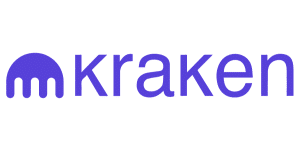
| PROS | CONS |
|---|---|
| Good exchange rates | Limited payment methods |
| Low transaction fees | |
| Available globally | |
| Easy to use |
Robinhood
Robinhood has transformed the trading landscape by offering commission-free trades, including cryptocurrency trading. While it's primarily available in the United States, its popularity is on the rise.
However, it's important to note that the free crypto trades come with limitations.
Robinhood is a suitable choice for beginners looking to dip their toes into cryptocurrency trading without significant risk.
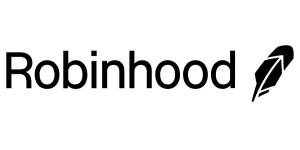
| PROS | CONS |
|---|---|
| Free cryptocurrency trading | Limited features |
| Sleek and user-friendly platform |
BlockFi
BlockFi offers a unique feature that sets it apart – the ability to lend your holdings and earn interest on them. Instead of selling your coins, BlockFi allows you to borrow against your holdings, which can be particularly helpful in a bear market when you need funds but don't want to sell your assets.
One of BlockFi's standout features is the potential to earn up to 8.6% annual interest on your coins.
BlockFi is recommended for serious traders and investors looking to maximize their returns and retain ownership of their cryptocurrencies.

| PROS | CONS |
|---|---|
| High yield on cryptocurrency deposits | Interest rates are subject to change |
| Able to borrow against your holdings | Limited to one free withdrawal per month |
| Zero minimums or monthly fees | Lacks FDIC or SIPC insurance |
Poloniex
Poloniex, established in 2014, is a well-known cryptocurrency exchange with a wide selection of over 100 Bitcoin cryptocurrency pairings. It's particularly favored by advanced traders and investors due to its advanced tools and comprehensive data analysis features.
One standout feature is the absence of withdrawal fees, except for the transaction fees required by your network.
To assist beginners, Poloniex provides a chatbox for user support, making it accessible for users of all experience levels.
Poloniex is recommended primarily for advanced traders and investors.
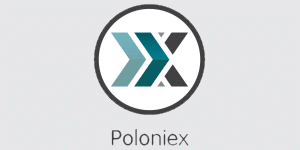
| PROS | CONS |
|---|---|
| High volume trading | Slow customer service |
| User-friendly | No Fiat Support |
| Low trading fees |
CEX.IO
CEX.IO provides various payment methods when dealing with Bitcoin or other cryptocurrencies.
What makes CEX.IO a suitable choice for beginners is its integration with fiat money. CEX.IO allows users to utilize fiat currency alongside cryptocurrencies.
For more experienced traders, the platform offers advanced tools, including a user-friendly dashboard and margin trading, allowing you to customize your trading experience.
It's reassuring to note that the CEX.IO website prioritizes security. Additionally, you have the option to store your coins in secure cold storage if you prefer.
We would recommend CEX.IO for both beginners and advanced traders.
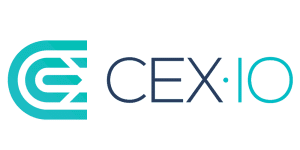
| PROS | CONS |
|---|---|
| Supports credit cards | Strict rules for verification |
| Beginner-friendly | Fees vary depending on the payment method |
| Supported globally | |
| Offers competitive exchange rates |
Bitbuy
Bitbuy is a digital currency platform based in Canada, established in 2013. It has rapidly become one of Canada's leading digital currency platforms.
Bitbuy is renowned for its exceptional customer service, swift deposit and withdrawal processing times, and its user-friendly interface.
This platform is an excellent choice if you intend to purchase and hold digital coins or convert your fiat currency into cryptocurrencies.
However, Bitbuy has limitations. It is exclusively available to Canadian users, and it offers a restricted range of asset classes, which may not cater to the needs of advanced or active traders.
We recommend Bitbuy primarily for beginners in the cryptocurrency market.
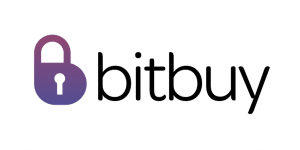
| PROS | CONS |
|---|---|
| Exceptional customer service | Limited variety of asset classes |
| Swift registration and verification time | Only available in Canada |
| Low fees | |
| Efficient processing of CAD deposits and withdrawals |
ChangeNOW
ChangeNOW is a relatively recent addition to the world of digital currency trading platforms, gaining recognition for its dependable service and competitive rates.
What sets ChangeNOW apart from its competitors is its account-free approach. Registration is not required when using ChangeNOW.
Despite its newcomer status, ChangeNow facilitates swift transactions involving over 170 digital currencies, including fiat-to-crypto exchanges
ChangeNOW also has clear charge rates which is always a win.
One of ChangeNOW's notable advantages is its transparent fee structure.
We would recommend ChangeNOW as a suitable choice for both novice and experienced traders in the digital currency space.
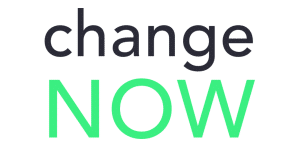
| PROS | CONS |
|---|---|
| Registration-free trade | Over 170 digital currencies available |
| No leverage trading on digital currencies offered | |
| Zero limits – no maximum exchange amount | |
| Easy purchase with a credit card | |
| Mobile app available |
Shapeshift
Shapeshift is a prominent platform that supports various digital currencies, including Bitcoin, Zcash, Dash, Dogecoin, and Monero.
Shapeshift is an excellent choice if you prefer quick trades without the need to create an account.
However, it's worth noting that this platform doesn't enable users to purchase cryptocurrency using credit or debit cards or other payment systems. Additionally, it lacks a fiat policy.
Shapeshift provides a straightforward experience, primarily focusing on exchanging Bitcoin with other cryptocurrencies.
We would recommend this platform for beginners looking to explore digital currencies and for hobbyists.
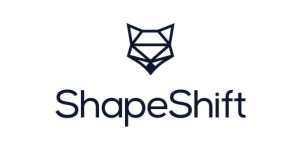
| PROS | CONS |
|---|---|
| Beginner-friendly | No fiat support |
| Reasonable pricing | Limited payment methods |
| Multiple digital currencies available | Lack of tools |
Bitstamp
Bitstamp, established in 2011 and headquartered in Europe, belongs to the first generation of digital exchanges.
Renowned for its safety and dependability, Bitstamp employs secure two-step verification technology for wallets and provides insured cold storage for added security.
Notably, Bitstamp offers free accounts, enabling users to commence trading promptly after completing the account setup and making their initial deposit.
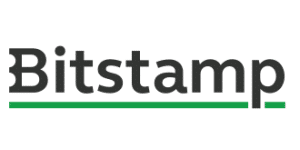
| PROS | CONS |
|---|---|
| High-level security | Not beginner-friendly |
| Available globally | High deposit fees |
| Low transaction fees | Bad user interface |
| Limited payment methods |
Coinmama
Coinmama is a well-established exchange with a global presence. It offers the convenience of purchasing Bitcoin and Ether using various payment methods, including credit or debit cards, Apple Pay, and bank transfers. This accessibility makes acquiring cryptocurrencies a straightforward process.
This feature is particularly advantageous for individuals seeking to quickly acquire their preferred digital currencies using their own funds.
However, one limitation of Coinmama is the absence of built-in wallets for LTC, BCH, XRP, ADA, QTUM, ETH, or BTC. If you plan to engage in cryptocurrency trading, you will need to obtain separate wallets for each of the cryptocurrencies you intend to trade.
For active traders, this requirement may pose some inconvenience.
In conclusion, Coinmama is a suitable choice for both beginners and advanced traders due to its user-friendly approach and diverse payment options.
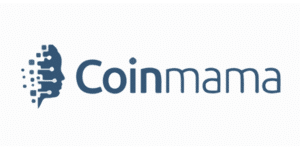
| PROS | CONS |
|---|---|
| User-friendly for beginners | Higher exchange rates |
| Exceptional user interface | Premium fees for credit card transactions |
| Available globally | No option to sell Bitcoin |
| Fast transaction processing |
Bitsquare
Bitsquare is a unique platform that operates without the need for user registration. It positions itself as a decentralized digital currency exchange, emphasizing instant accessibility to trading.
Bitsquare's standout feature is its peer-to-peer exchange functionality, facilitating the exchange of bitcoins for other cryptocurrencies or fiat currencies.
The platform places a strong emphasis on security, incorporating security deposits and a dedicated arbitrator system to resolve trade disputes effectively.
Bitsquare distinguishes itself by not holding users' funds and by maintaining privacy, as any personal data is only shared with your trading partners.
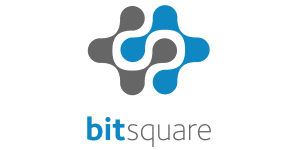
| PROS | CONS |
|---|---|
| Strong Security Measures | Limited Payment Methods |
| No Registration Needed | Not Beginner-Friendly |
| Variety of Cryptocurrencies | |
| Good fees | |
| Available Globally |
LocalBitcoins
LocalBitcoins is a peer-to-peer exchange platform, much like Bitsquare. It offers peer exchange services both locally and globally. With this platform, you can connect with fellow traders in your area and engage in the buying and selling of digital currencies. LocalBitcoins supports various payment methods, including PayPal, Dwolla, and direct bank transfers, simplifying the trading process.
In terms of security, LocalBitcoins has robust measures in place to safeguard your coins. It provides a two-factor authentication system as an optional feature to protect against hackers. Additionally, the platform records IP addresses used during account creation. If a user logs in from a different IP address, email verification is required for added security.
We recommend LocalBitcoins to advanced traders seeking a user-friendly and convenient trading experience.

| PROS | CONS |
|---|---|
| No ID Required | Difficult to Purchase Large Amounts of Digital Currencies |
| Instant Transfers | High Exchange Rates |
| Available Worldwide |
Binance
Binance is a centralized cryptocurrency trading platform specializing in crypto-to-crypto transactions. Notably, Binance introduces its proprietary cryptocurrency known as BNB (Binance Coin), and users can enjoy discounts when trading with BNB.
With a minimal trading fee of just 0.1% and a wide array of alternative cryptocurrencies to choose from, Binance has swiftly gained popularity for its exceptional offerings and cost-effective trading fees.
Our recommendation is to consider Binance as a suitable platform for both novice and experienced traders.

| PROS | CONS |
|---|---|
| Provides Proprietary Coin (BNB) | No Fiat Trading Supported |
| Low Trading Fees | Limited Payment Methods |
| Available Worldwide |
Gemini
Gemini is a licensed US-based exchange, adhering to the same regulations and standards as a US-based bank. This commitment to compliance is complemented by robust security measures, including cold storage.
Gemini employs a maker-taker fee schedule and extends discounts to high-volume traders. A significant advantage is the absence of fees for deposits and withdrawals.
However, there are limitations to consider. Gemini's services are not fully available worldwide, and it only facilitates trading in three currencies: the US dollar, ether, and Bitcoin. These limitations might deter advanced or serious traders from utilizing Gemini.
We recommend this platform to both beginners and experienced traders.

| PROS | CONS |
|---|---|
| High Volume Trading | Limited Currencies |
| Impressive Security Technology | Not Fully Available Worldwide |
| User-Friendly | Lacks Margin Trading |
| Licensed in the US |
LinkCoin
LinkCoin is a digital currency platform based in Canada. It utilizes an over-the-counter (OTC) exchange developed by Yesbit Ltd and Bibox.
LinkCoin operates autonomously using smart contracts and provides access through a web-based platform as well as Android and iOS mobile apps.
With a selection of seven digital currencies and competitive transaction fees, including zero buyer fees and only a 0.6% seller fee, LinkCoin offers an affordable trading experience.
Our recommendation for this digital currency platform is primarily geared towards advanced traders.

| PROS | CONS |
|---|---|
| No ID Required | Limited Altcoin Selection |
| Affordable Fees | Not Suitable for Beginners |
| Excellent Security | |
| Multiple Payment Methods |
What is cryptocurrency?
Cryptocurrency is a form of digital currency used for online transactions and trading to potentially generate profits. These digital currencies are secured and managed through online ledgers, ensuring the security of online transactions. Many companies have introduced their own cryptocurrencies, often referred to as tokens, which can be used to exchange for goods and services. The underlying technology that makes cryptocurrencies work is called blockchain, a decentralized system distributed across computers worldwide that records and manages online transactions.
There are currently over 6,700 different cryptocurrencies available in the market. Bitcoin, the most renowned among them, boasts a market capitalization of approximately $563.8 billion.
Brokers play a pivotal role as intermediaries between buyers and cryptocurrency exchanges. They acquire significant amounts of cryptocurrencies and offer them on their platforms, aiming to sell them at higher rates than those on the exchange. By opting for a broker, users gain access to various services such as convenient payment methods, operational systems, and customer support.
How to pick a crypto trading platform?
Before delving into the realm of cryptocurrencies, it's crucial to consider the following factors when choosing a trading platform:
Privacy
Ensure the platform offers privacy settings, including two-step authentication for enhanced security against hackers, protecting both your account and personal information.
What can you trade?
Check which digital currencies the platform supports and whether they align with your trading preferences and goals.
Limits
For active traders, be aware of daily or monthly transaction limits, as exceeding these limits could result in increased fees.
Fees
Understand the fees associated with your account and transactions. Fees can vary between platforms and transaction types.
Liquidity
Assess the ease of converting your digital assets into cash and consider any associated costs.
Speed
Investigate the trade execution speed, especially if you are an active trader where faster execution may be critical.
Education
Look for platforms with educational content that can help both beginners and experienced traders learn more about cryptocurrencies and trading tools.
Research
Examine the quality and accessibility of research content, especially if you are trading short-term cryptocurrencies influenced by current events and news.
In the case of short-term cryptocurrencies, this is important because they are sensitive to relevant news.
Minimums
Check for various minimum requirements, such as the minimum account opening amount, deposit or investment thresholds, and minimum account balances.
Payments Methods
Determine the available payment options, including credit and debit cards, PayPal, wire transfers, and supported currencies.
Tools
Evaluate the platform's tools, including historical price charts, real-time data streaming, and charting options. Customizability can be essential for active traders.
Supported Countries
Ensure that the platform is fully accessible in your region or country, as some platforms may have restricted access.
Reputation
Research the platform's reputation through user reviews, online articles, and general online feedback.
Security
Prioritize platforms with robust security measures, such as cold storage for added protection against scams and hackers.
Trading Platform
Consider whether the platform offers multiple access points, such as online-based platforms, desktop apps, and mobile apps, to accommodate different trading styles and preferences.
Leverage
Regulation
Verify the platform's compliance with government regulations and financial institutions, as regulation impacts various aspects of cryptocurrency trading, including security and operational protocols.
Types of Exchanges
Brokers
These are online platforms where you can join to purchase and trade cryptocurrencies worldwide. Brokers facilitate transactions based on their set prices.
Trading Platforms
Trading platforms are websites or applications that connect cryptocurrency buyers and sellers. Users are charged a fee for each transaction, and fee structures may vary from one platform to another.
Peer-to-Peer
P2P exchanges enable individuals to trade cryptocurrencies directly with each other. These platforms offer flexibility for users to buy, sell, and trade on their own terms.
- Centralized and decentralized exchanges
This distinction relates to control over your account. Centralized exchanges maintain significant control over user accounts, while decentralized exchanges grant users more control over their accounts and assets.
- Fiat-to-Crypto exchanges
These exchanges allow users to convert fiat currency into cryptocurrencies or vice versa. Traders can also use fiat currency to purchase cryptocurrencies.
- Crypto-to-Crypto Exchanges
Crypto-to-crypto exchanges facilitate the trading of various cryptocurrencies among users.
- Custodial vs Non-Custodial Exchanges
In custodial exchanges, the platform holds users' funds during instant trades. Non-custodial exchanges do not retain control over users' funds, giving users more autonomy.
How to Invest in Cryptocurrency:
The Process
Investing in cryptocurrencies shares similarities with investing in stocks. Here's a step-by-step process:
- Choose a cryptocurrency broker: Select a reputable cryptocurrency broker that aligns with your trading preferences and goals.
- Sign up: Register for an account on the chosen cryptocurrency broker's platform.
- Get Your Account Verified: Complete the necessary verification process to comply with regulatory requirements and enhance account security.
- Deposit Money: Fund your trading account by depositing the desired amount of money.
- Buy Coins: Use the deposited funds to purchase cryptocurrencies of your choice from the broker's offerings.
- Sell or Trade: Execute trades to sell or trade your acquired cryptocurrencies, potentially resulting in profit or loss. Profits are typically credited to your account balance.
How to Buy Bitcoin or Crypto
To buy Bitcoin or other cryptocurrencies, follow these steps:
1. Ensure that the chosen platform supports your preferred payment method, such as credit or debit cards.
2. Alternatively, you can transfer funds from your bank account to the cryptocurrency exchange.
Investing in cryptocurrencies requires careful consideration of your trading preferences, risk tolerance, and the specific cryptocurrencies you wish to acquire. Conduct thorough research and stay informed about market trends and developments to make informed investment decisions.
